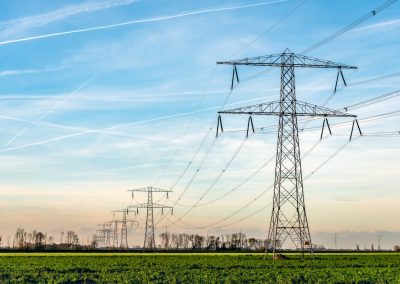News & Events
During the last quarter of 2016 carbon emissions from Britain’s power sector fell to their lowest level for 60 years as more coal came off the system making way for renewables according to the latest Electric Insights report.
2016 saw the most dramatic shift in the make-up of electricity generation since the 1984 miners’ strike. Coal generation fell 61% from the previous year as a mixture of low gas prices and the Carbon Price Floor continued to force it off the system – whilst Gas generation was up by more than 50%.
September-December saw low carbon sources provide an average of 40% of Britain’s electricity needs over the quarter, peaking at a record 81% high over the Christmas period.
Wind output was low this quarter, down 7% on the same period in 2015, with fewer large storms and lower average wind speeds when compared to previous years. Wind speeds in Q4 2016 were down 15% on 2015, the lowest since 2012.
Despite this, when Storm Barbara passed through just before Christmas, wind power passed the 10GW barrier for the first time in Britain, beating the previous record of 9.4GW set in 2014. However, wind farms spent a whole day producing on average, less than 0.7GW – an output of just 5% of their installed capacity.
“These figures highlight a truly seismic shift in the balance of power. Coal continues to disappear at a dramatic rate and we can see the impact of intermittent renewables which have been affected by dramatic weather events.
“Low gas prices and the Carbon Price Floor are forcing coal off the system and helping to ensure the UK is on track to meet its carbon targets for the power generation industry.
“It’s essential the UK’s energy system is supported by the right mix of power generation. Coal-to-biomass conversions and gas peaking plants are the best way to get coal off the system quickly and cost effectively whilst ensuring security of supply.”
Andy Koss
Drax Power CEO
“The stats clearly show that the Carbon Price Floor (CPF) has played an important part in relegating coal to a more ‘climate-friendly’ role providing infrequent peaking power at times of greatest need, allowing lower carbon gas to take over as the baseload generator.
“Over the last two years the CPF has added 0.5p/kWh to the cost of generation, or about 3% of a household electricity bill. In return it has played a major part in reducing carbon emissions by a third, making it excellent value for money.”
Dr Iain Staffell
Report producer – Imperial College London
The report also found that:
- Britain became a net exporter to France for the first time in six years due to a crisis with French nuclear stations, but exports were limited due to the interconnector being damaged.
- The loss of imports to France left the power market tight with National Grid issuing notices of thin margins. Power price volatility grew, with peak prices over £1,500/MWh.
www.ElectricInsights.co.uk
Electric Insights is commissioned by Drax Group, owner and operator of the UK’s largest power station and Europe’s biggest biomass-fuelled power plant, and delivered independently by researchers from Imperial College London via Imperial Consultants. It provides live data from 2009 until the present.
Dr Iain Staffell leads the team from Imperial – which includes Professors Richard Green and Tim Green (experts in energy economics and electrical engineering), and Dr Rob Gross (an expert in energy policy) – providing new empirical evidence to contribute to the UK energy debate.
For more information about Drax visit their website or twitter @Draxnews
Share post:
Latest news, insights and events

Imperial Consultants provides expertise for iconic company: BSI
The UK’s National Standards Body, BSI (British Standards Institution), has commissioned consultancy advice within data modelling expertise to look at improving smart city implementation. read more

Imperial’s new COVID-19 testing lab goes live
Imperial’s contribution to the Testing Alliance launched. Includes the UKAS accredited Molecular Diagnostic Unit (MDU) and existing high-throughput robotic platform for RNA extraction. read more

Power system flexibility is keeping Great Britain’s lights on
Maintaining flexible power systems able to rapidly respond to changes on the grid is critical in preventing power cuts as Britain transitions to a net zero economy according to Electric Insights report by Dr Iain Staffell and Drax read more
